Description
ABSTRACT
Examining the Efficacy of Enforcing the Carrier’s Right to a Lien on Cargo: A Nigerian Legal Perspective
Damilola Osinuga*
This article explores the Carrier’s right to a lien on cargo and its enforcement within the Nigerian maritime legal framework. The Carrier’s lien is crucial in securing unpaid freight charges and related expenses. However, its efficacy and enforcement mechanisms can vary significantly across different jurisdictions. This study meticulously examines the legal framework, judicial precedents, and practical hurdles associated with enforcing the Carrier’s right to a lien on cargo in Nigeria. Through a thorough analysis of relevant statutes, case law, and international conventions, the research offers valuable insights into the Nigerian perspective on lien enforcement. Moreover, this study aims to identify potential obstacles and propose effective measures to enhance the enforcement of the Carrier’s lien. This research’s findings contribute to the knowledge of maritime law and present practical recommendations for stakeholders involved in cargo transportation and dispute resolution within Nigeria’s jurisdiction.
Keywords: Carrier’s right, Lien on Cargo, Nigeria, Maritime law, freight.
INTRODUCTION
Maritime transportation has played a pivotal role in the global economy for centuries, underscoring the significance of establishing a resilient infrastructure for international goods carriage and incentivizing carrier investment in these business ventures. Public policy considerations, deeply ingrained over time, have led most countries’ legal frameworks to recognize the imperative for carriers to receive consistent and timely cash inflows, which are vital for financing their operations.1 Moreover, carriers should be empowered to safeguard their income swiftly when confronted with difficult circumstances. A well-established mechanism employed in the shipping industry to address these concerns is the exercise of a lien on cargo. A carrier is entitled to hold on to the possession of cargo delivered to it until the contract sum for the carriage is fully paid. This recourse is regularly employed and is intended to serve as a prompt and productive strategy to compel payment from obstructive and unyielding debtors.2
*PhD, MICS., Managing Partner, Damilola Osinuga, LP.
- See, e.g., The Aries [1977] 1 Lloyd’s Rep 334 regarding the inability of cargo interests to set off cargo claims against freight, and The Aliakmon Progress [1978] 2 Lloyd’s Rep 499 and The Nanfri [1978] 2 Lloyd’s Rep 132 regarding the limited circumstances in which deductions can be made from hire.
- Prof Richard Williams, ‘The Effectiveness of Liens as a Self-Help Remedy?’ in Thomas Rhidian (ed), Legal Issues Relating to Time Charterparties (Informa Law 2008).

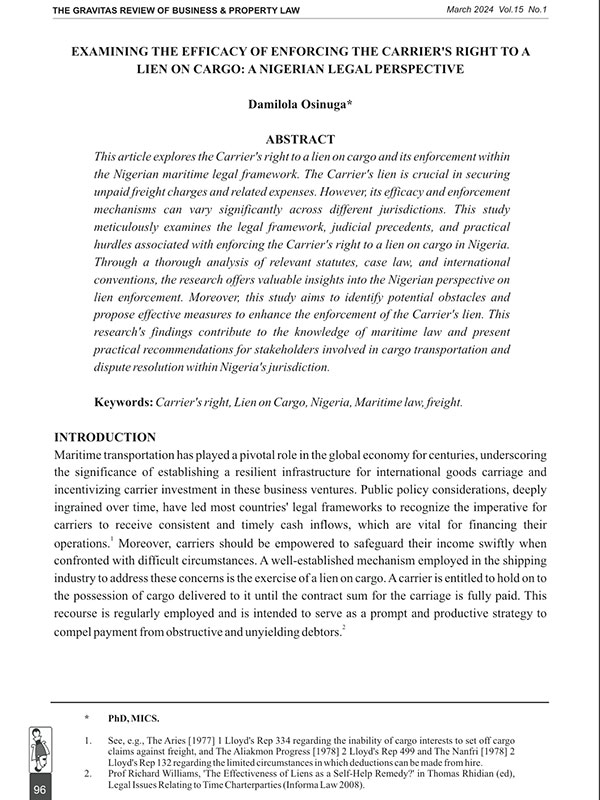
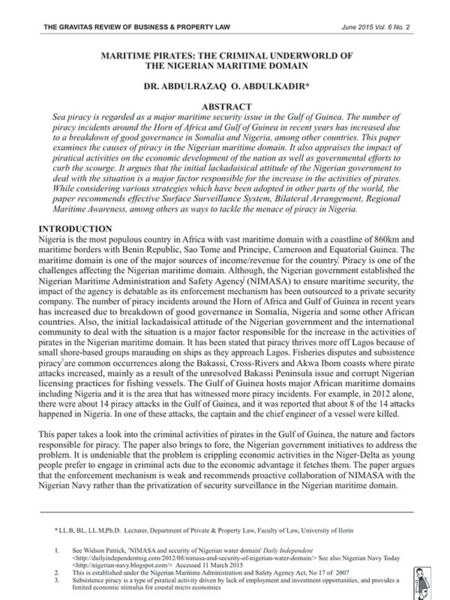
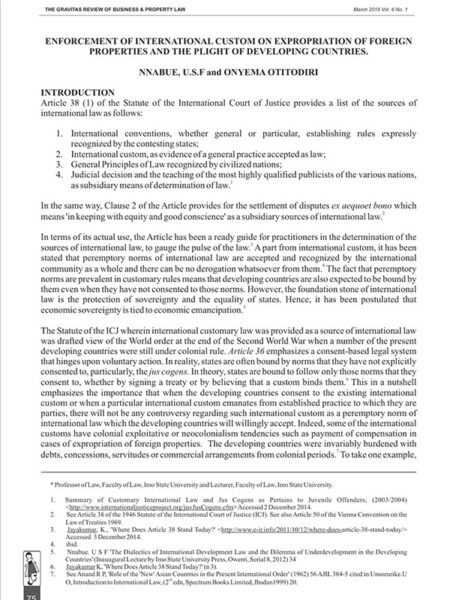
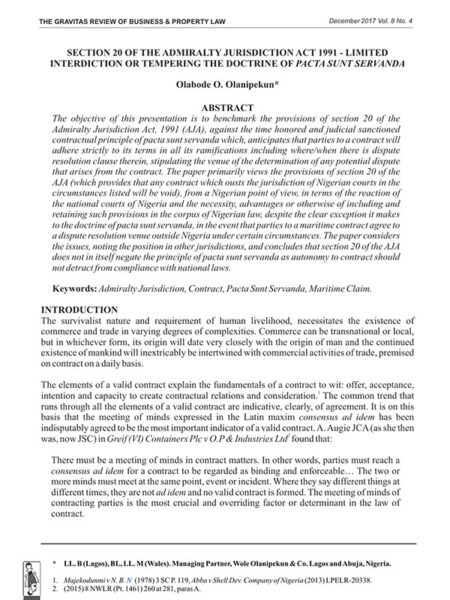
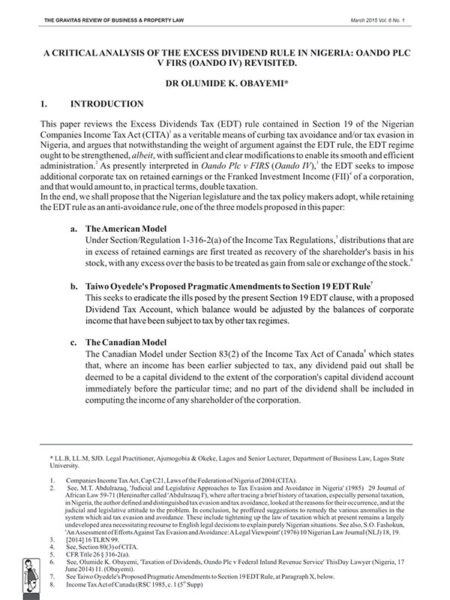


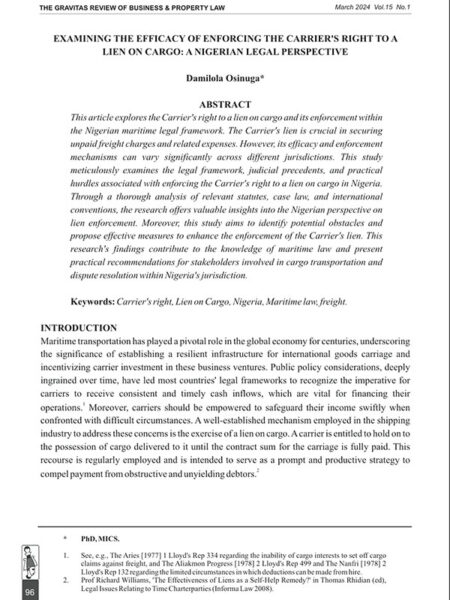
Reviews
There are no reviews yet.